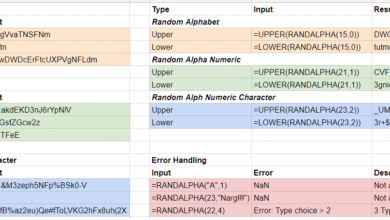Erome: A Deep Dive into the Platform, Its Culture, and Digital Impact

Introduction to Erome
Erome is a name that has been making rounds in various digital spaces, often drawing curiosity and conversation. At first glance, it might appear like just another niche platform among the vast pool of content-sharing websites, but it represents something much bigger—a fusion of online freedom, community-driven culture, and the complex dynamics of modern digital life. Unlike mainstream platforms that lean heavily toward polished, commercialized content, embraces a rawer and more unfiltered side of the internet.
What makes Erome stand out is not only the type of content it hosts but also the way people interact with it. In an online era dominated by carefully curated feeds, algorithm-driven suggestions, and the never-ending quest for likes and follows, exists as a reminder that not all digital spaces need to look the same. It highlights the power of community-driven sharing, unrestricted creativity, and the complexities of privacy in a digital-first world.
The digital landscape is often categorized into mainstream and alternative platforms. While social giants like Instagram, Facebook, or TikTok dominate global attention, alternative platforms like Erome offer different value systems. These are often built around subcultures and specific user groups who want more freedom, anonymity, and raw expression without the sanitization demanded by corporate oversight. Erome, in this sense, represents a growing digital subculture that thrives outside the traditional boundaries of mainstream media.
In many ways, studying Erome is not just about the website itself but about the larger questions it raises: What do users truly want in their online spaces? How much control should platforms exert over personal expression? And what happens when communities grow in the shadows of digital giants? These are the conversations that make more than just a platform—it becomes a case study in modern internet culture.
The Rise of Alternative Content Platforms

The internet has always been a place where niches thrive. Erome from early forums and bulletin boards to modern subreddits and Discord servers, the digital world has consistently provided sanctuaries for people with unique interests, rise follows this same trajectory. It has carved out a space where people can freely share, interact, and create without the rigid restrictions seen on mainstream platforms.
The appeal of platforms like Erome lies in the sense of ownership and authenticity. Users are not forced into predefined molds; instead, they are encouraged to bring their raw, unfiltered selves. While this freedom has sparked debate, it has also built communities that are deeply engaged and loyal. This contrasts with algorithm-driven platforms that often prioritize engagement metrics over genuine human interaction.
Another aspect of Erome rise is tied to the evolution of privacy in the digital era. With the increasing awareness of how mainstream platforms harvest and monetize user data, many individuals have shifted toward platforms that promise more control and anonymity. Erome, by design, offers an alternative approach that appeals to those skeptical of corporate digital surveillance.
It’s also important to recognize that alternative platforms thrive on cultural shifts. People are tired of repetitive content, the pressure to maintain a picture-perfect digital identity, and the overwhelming influence of advertisers. Erome, in contrast, is built around a subculture that values self-expression over mass approval. In a sense, it reflects a digital rebellion against the sanitized aesthetics of modern social media.
The Culture Behind Erome
To understand Erome, one must look beyond the platform and dive into the culture that fuels it. Every online space, no matter how niche, builds its own identity through the values, behaviors, and unwritten rules of its community. Erome is no different—it thrives on the idea of open sharing, boundary-pushing, and embracing diversity in digital self-expression.
One key element of Erome’s culture is authenticity. Users often engage in ways that strip away the layers of perfection found elsewhere. This creates an environment where raw, unpolished content can exist without judgment. For some, this is liberating, as it removes the social pressures of likes, shares, and algorithmic ranking systems.
Another cultural layer lies in the sense of belonging. Platforms like Erome often attract individuals who feel out of place in mainstream digital spaces. By joining such a community, users discover not just a platform but a tribe of like-minded individuals who share their values. This sense of belonging fosters loyalty and often creates a deeper bond than what’s typically seen on commercialized platforms.
However, the culture of Erome is not without its controversies. Discussions about ethics, privacy, and digital responsibility frequently emerge. The very freedom that makes the platform appealing also raises questions about regulation and accountability. This tension between expression and control is what makes Erome culturally significant—it embodies the ongoing debate about how much freedom the internet should truly allow.
Privacy, Freedom, and the Digital Dilemma
Perhaps the most important conversation surrounding Erome is about privacy and freedom. In an age where data is currency, users are increasingly aware of how much of their personal information is tracked and exploited. Erome represents a contrasting philosophy—prioritizing freedom and anonymity over control and monetization.
This freedom, however, comes with its own challenges. The absence of strict regulations can create both opportunities and risks. On one hand, users experience the liberation of sharing without constant oversight. On the other, the lack of boundaries can sometimes blur ethical lines, raising questions about safety and responsibility.
For users, the choice often comes down to trust. While mainstream platforms promise safety through moderation, many people feel suffocated by the overreach of rules and algorithms. Erome, in contrast, trusts its community to self-regulate, allowing more personal agency. This delicate balance between freedom and responsibility makes it both attractive and controversial.
The digital dilemma surrounding Erome reflects a broader truth: the internet is still evolving. We are constantly negotiating the balance between expression, safety, and privacy. Platforms like Erome force us to confront these challenges head-on, reminding us that no single solution can serve everyone. Instead, the digital landscape will continue to diversify, with platforms catering to different visions of what online life should look like.
The Future of Platforms Like Erome
Looking ahead, platforms like Erome are likely to grow in influence, not necessarily in size but in cultural impact. They represent the alternative pathways of the internet—smaller, niche spaces that challenge the dominance of mainstream giants. As users continue to seek authenticity, privacy, and freedom, platforms with these values will remain relevant.
The future of Erome also depends on how it navigates the inevitable pressures of growth. Will it remain true to its community-driven roots, or will it shift toward commercialization like so many platforms before it? This is a question that will determine whether Erome stays a countercultural hub or becomes absorbed into the broader digital ecosystem.
Additionally, as conversations about digital ethics and online privacy continue to gain momentum, platforms like Erome may become focal points in debates about internet regulation. Governments, corporations, and users alike will grapple with how to balance freedom and responsibility in these spaces. Erome, whether it intends to or not, will play a role in shaping that conversation.
What’s certain is that the digital landscape is not static. Just as early forums gave way to social networks, and social networks gave rise to niche platforms, the cycle of evolution continues. Erome is part of this ongoing story, reminding us that the internet’s true strength lies not in uniformity but in diversity.
Conclusion: More Than Just a Platform
At its core, Erome is not just a website—it is a reflection of the internet’s multifaceted nature. It embodies the tension between freedom and responsibility, privacy and exposure, mainstream and alternative. Whether celebrated as a hub of authenticity or criticized for its controversies, it undeniably plays a role in shaping how we think about digital communities.
In many ways, Erome serves as a cultural mirror. It shows us what happens when people are given raw freedom in digital spaces—sometimes beautiful, sometimes messy, but always revealing. For anyone seeking to understand modern internet culture, studying platforms like Erome is essential. They may not dominate headlines the way larger platforms do, but they reveal truths about online behavior that mainstream networks often hide.
Ultimately, Erome represents a reminder that the internet is still wild at heart. Beyond algorithms, corporate interests, and curated feeds, there exists a world of raw digital expression. And in that world, platforms like Erome continue to thrive—challenging our assumptions, sparking debates, and redefining what it means to live and share in the digital age.



